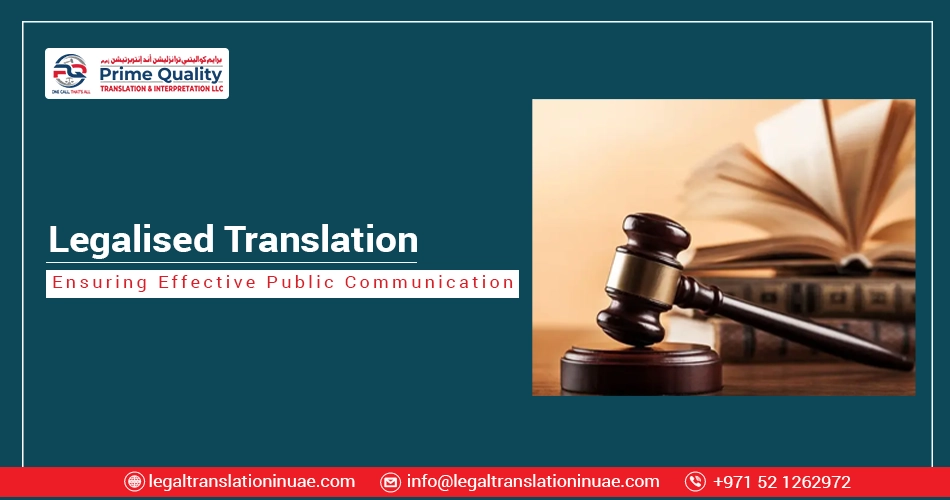Welcome to our blog! In today’s post, we will be discussing the importance of legalized translation in government and its role in ensuring essential public communication. With the increasing diversity in our society, the need for accurate and culturally sensitive information has become more crucial than ever.
This is where Prime Quality Translation, plays a significant role in bridging the language barrier between the government and its citizens. Join us as we explore how legalised translation can promote transparent and inclusive communication between the government and the public.
Understanding Legalised Translation: An Overview
Legalised translation involves translating legal documents like laws and court proceedings between languages. This process is vital for clear communication between governments and citizens who speak different languages, ensuring an understanding of rights, obligations, and laws.
It supports cross-border transactions, cultural exchange, and inclusivity in diverse communities. Recognizing the significance of legal translation is essential for governments to promote transparent, accessible, and equitable communication with constituents.
The Importance of Effective Public Communication in Government
Effective public communication in government is crucial for transparency, trust, and inclusivity. Legalized translation is vital in breaking down language barriers, ensuring all citizens, regardless of language proficiency, have access to accurate and culturally sensitive information, and fostering a strong government-citizen relationship.
By investing in legalised translation, governments can effectively reach and engage with their diverse populations, leading to better-informed citizens, increased public participation, and ultimately, a stronger democratic society.
The Role of Legalised Translation in Enhancing Government Communication
Legalized translation is essential for effective government communication, ensuring information accessibility for all citizens, regardless of language proficiency. It facilitates clear communication of policies and services to diverse communities, promoting transparency and trust.
Accurate translations enable individuals to understand their rights and responsibilities, fostering stronger relationships between the government and citizens. Legal translation bridges language gaps, facilitating deeper engagement and contributing to a more participatory democratic society.
Challenges of Incorporating Legalised Translation in Government
- One of the main challenges in incorporating legalized translation in government is the cost and availability of qualified translators. Finding translators who are proficient in both the source and target languages, as well as knowledgeable about legal terminology, can be difficult.
- Additionally, there may be limited funding allocated for translation services, making it challenging to meet the demand for translations on time.
- Another challenge is ensuring the accuracy and consistency of translations across different languages and government departments.
Despite these challenges, investing in and prioritizing legalized translation is crucial for governments to effectively communicate with their diverse populations.
The Impact of Legal Accurate Translation on Public Trust and Participation
Legal and accurate translation enhances public trust and government participation by offering accurate translations of crucial information and documents. This facilitates effective engagement with diverse populations, promoting inclusivity and ensuring understanding of rights and responsibilities.
This fosters increased public participation, empowering individuals in the democratic process. Legal translation is pivotal in creating a society where everyone’s voice is heard, fostering a sense of belonging.
Implementing Legal Translation in Government Policies
Implementing legal translation in government policies is crucial for ensuring equal access to information and services for all citizens. By incorporating legal translation practices into policy development and implementation, governments can ensure that individuals who speak different languages can fully understand their rights, obligations, and the laws that govern them.
This can be done through the establishment of translation departments within government agencies, hiring professional translators, or partnering with translation services. By making legal translation an integral part of government policies, you can create a more inclusive and equitable society for all.


